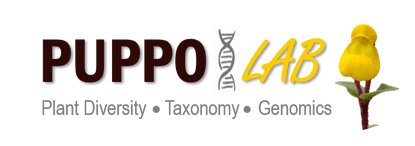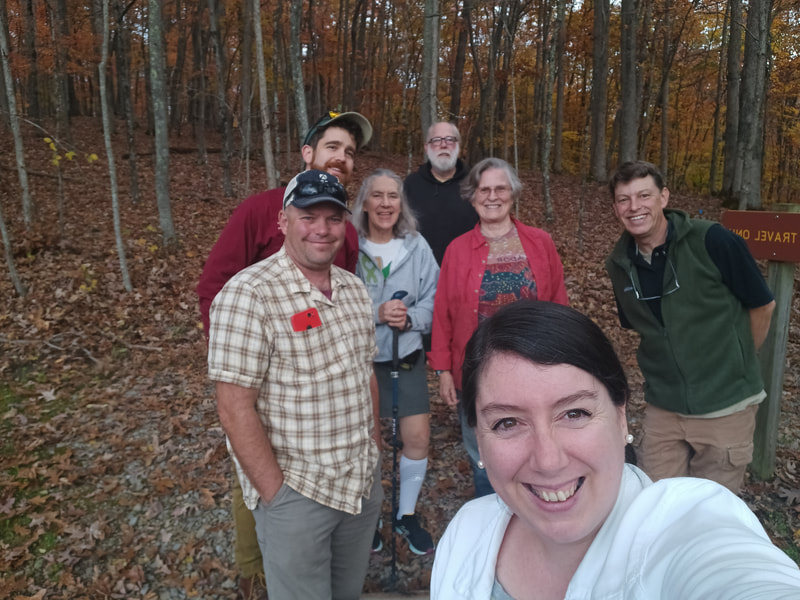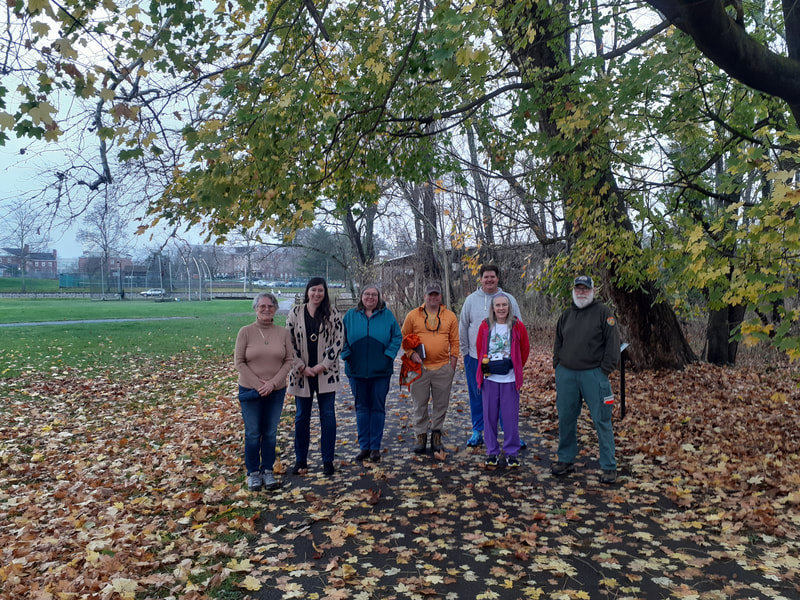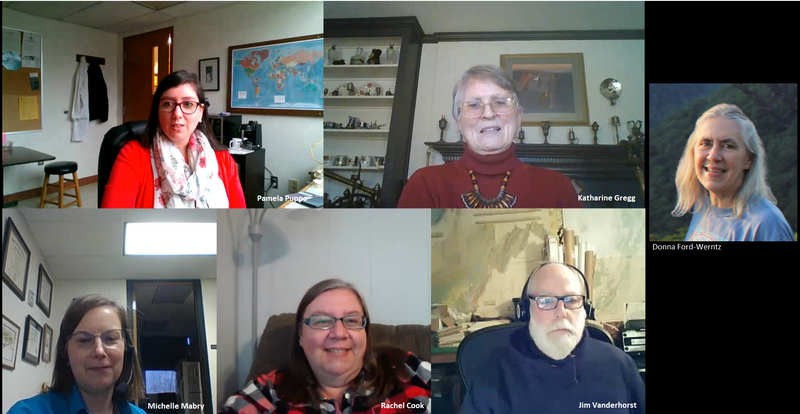Located on the third floor of the Science Building, the Marshall University Herbarium (MUHW) is the second largest Herbarium in the state of West Virginia. It houses approximately 52,000 vascular plant specimens, and small collections of fossils, algae, fungi, and non-vascular plants. The Herbarium also counts with a modest ethnobotanical collection and a specialized botanical library.
Digitization and transcription initiatives
Since 2017, the vascular plant collection is available on the Southeast Regional Network of Expertise and Collection portal (SERNEC). This was made possible by a National Science Foundation grant awarded to former curator, Dr. Emily Gillespie. While 99% of the vascular plant specimens have already been imaged, we are still in the process of completing the transcription of 60% of these specimens. We rely on one part-time student worker and several volunteers, undergraduate students and others, to complete this task.
Recently, we developed a 3D digitization protocol for some of the 3D specimens present in our collection (Shamblin & Puppo 2023). Below, some examples:
Digitization and transcription initiatives
Since 2017, the vascular plant collection is available on the Southeast Regional Network of Expertise and Collection portal (SERNEC). This was made possible by a National Science Foundation grant awarded to former curator, Dr. Emily Gillespie. While 99% of the vascular plant specimens have already been imaged, we are still in the process of completing the transcription of 60% of these specimens. We rely on one part-time student worker and several volunteers, undergraduate students and others, to complete this task.
Recently, we developed a 3D digitization protocol for some of the 3D specimens present in our collection (Shamblin & Puppo 2023). Below, some examples:
History of the Herbarium and manuscript collection
Through a partnership with the Special Collections at Marshall University Libraries, we have been processing the manuscript collection present at MUHW. Letters, photographs, and other documents dating back to the early 1900’s provide relevant information not only to the history of the herbarium, but to the history of Marshall University and the city of Huntington. To know more about this partnership, check out the resources below.
Research in the Herbarium
There are many ways in which the Herbarium collection can be used for research purposes, morphology-based, ecology-based, biodiversity estimates, molecular analyses, ethnobotanical research, among others. Specimens are available to other academic institutions via formal loans. Destructive sampling for molecular analyses is permitted on a case-to-case basis and with previous authorization from the curator. The Herbarium is open to visitors during normal office hours and guided tours are offered to anyone that wants to visit the collection or know more about herbaria.
West Virginia Herbaria
Since 2021, we have been organizing Annual Meetings of WV Herbarium Curators. These meetings are a way of developing friendship and fostering collaboration among the curators of our state and to identify priorities for our collections towards the future.
For a summary of the major Herbaria in the state of West Virginia, check this article here. For a summary of our 2023 meeting, see this note here.
If you'd like to join our network and receive news about these meetings, please email the Marshall University Herbarium Curator to the contact indicated at the end of this page.
Through a partnership with the Special Collections at Marshall University Libraries, we have been processing the manuscript collection present at MUHW. Letters, photographs, and other documents dating back to the early 1900’s provide relevant information not only to the history of the herbarium, but to the history of Marshall University and the city of Huntington. To know more about this partnership, check out the resources below.
- Puppo, P. and D. Thompson. 2021. Partnering with archivists to process the manuscript collection present at the Marshall University Herbarium. The Vasculum 16(2):8-11. Available here.
- Puppo, P., D. Thompson, and L. Harper. 2023. Uncovering hidden figures at the Marshall University Herbarium through inter-disciplinary collaborations. SISRIS Symposium, Association of Southeastern Biologists Annual Meeting, Winston-Salem, NC. Available here.
Research in the Herbarium
There are many ways in which the Herbarium collection can be used for research purposes, morphology-based, ecology-based, biodiversity estimates, molecular analyses, ethnobotanical research, among others. Specimens are available to other academic institutions via formal loans. Destructive sampling for molecular analyses is permitted on a case-to-case basis and with previous authorization from the curator. The Herbarium is open to visitors during normal office hours and guided tours are offered to anyone that wants to visit the collection or know more about herbaria.
West Virginia Herbaria
Since 2021, we have been organizing Annual Meetings of WV Herbarium Curators. These meetings are a way of developing friendship and fostering collaboration among the curators of our state and to identify priorities for our collections towards the future.
For a summary of the major Herbaria in the state of West Virginia, check this article here. For a summary of our 2023 meeting, see this note here.
If you'd like to join our network and receive news about these meetings, please email the Marshall University Herbarium Curator to the contact indicated at the end of this page.
Contact
Dr. Pamela Puppo, curator, pamela.puppo[at]marshall.edu
Proudly powered by Weebly



